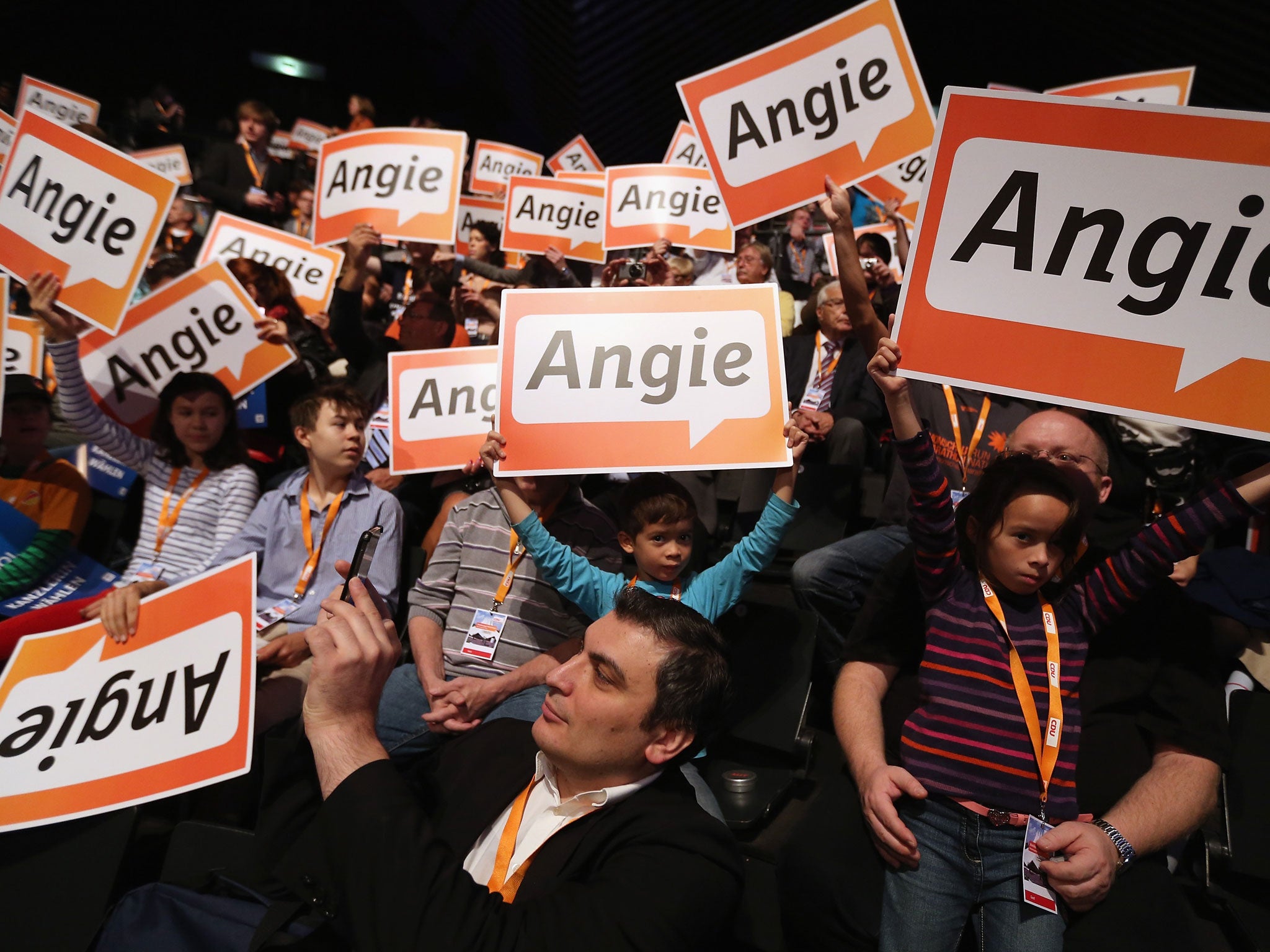Angela Merkel on a knife edge as Germany goes to polls
Anti-euro party set up seven months ago could alter the balance of power after today's general election and force a new coalition

Your support helps us to tell the story
From reproductive rights to climate change to Big Tech, The Independent is on the ground when the story is developing. Whether it's investigating the financials of Elon Musk's pro-Trump PAC or producing our latest documentary, 'The A Word', which shines a light on the American women fighting for reproductive rights, we know how important it is to parse out the facts from the messaging.
At such a critical moment in US history, we need reporters on the ground. Your donation allows us to keep sending journalists to speak to both sides of the story.
The Independent is trusted by Americans across the entire political spectrum. And unlike many other quality news outlets, we choose not to lock Americans out of our reporting and analysis with paywalls. We believe quality journalism should be available to everyone, paid for by those who can afford it.
Your support makes all the difference.Chancellor Angela Merkel's chances of winning an outright victory for her coalition in today's general election were on a knife edge last night, with opinion polls suggesting that Germany's new anti-euro party could oust her government by entering parliament for the first time.
Last-minute public opinion surveys predicted that Ms Merkel's conservatives would capture the largest share of the vote, but that the anti-eurozone Alternative for Germany (AfD) party could win some 4.5 per cent, putting it within a hair's breadth of winning seats in the German Bundestag.
Should the AfD surmount the 5 per cent vote hurdle needed to win seats, it would destroy Ms Merkel's hopes of continuing her current conservative-liberal alliance and force her to seek a grand coalition with the opposition Social Democrats. "It looks as if it's going to be an exciting finish," said Klaus-Peter Schöppner, head of the respected Emnid polling group.
Sensing the danger, Ms Merkel delivered an unusually impassioned defence of the euro at closing campaign rallies in Berlin and in her constituency in the Baltic port city of Stralsund yesterday. "Stabilising the euro is not only a good thing for Europe, it is of vital interest to Germany," she told hundreds of cheering Christian Democrat supporters. "It guarantees our standard of living, it guarantees our jobs," she insisted.
The presence of an anti-euro party in the German parliament would be a humiliating outcome for Ms Merkel, who relishes her reputation as the "most powerful and successful woman leader in Europe". The 59-year-old has won much of her popularity by championing the single currency and appearing to be the master manager of the eurozone crisis.
However, during her election campaign she avoided mentioning the future financial burdens that German taxpayers would have to bear in order to sustain the eurozone in its current form. Her campaign steered clear of controversy and focused largely on personality. Critics have accused her of lying to voters and "running scared" of the electorate.
Voters disgruntled by Ms Merkel's euro policies, have found a new home in the eurosceptic AfD, led by an economics professor, Bernd Lucke. The party has told voters that "Germany doesn't need the euro" in its current form. It wants crisis-hit countries such as Greece and Spain to leave the eurozone and favours a new single-currency alliance made up of Germany and its rich northern European neighbours, but excluding France.
If the party enters the Bundestag, it could upset the delicate party political balance of Ms Merkel's current coalition of conservative Christian Democrats and liberal Free Democrats (FDP) by undermining their majority. The liberals are already struggling to win enough votes to enter parliament. Should they fail to overcome the 5 per cent vote hurdle, Ms Merkel would be obliged to seek a grand coalition, thus repeating the line-up of her first government, which she led from 2005-09.
Many of the AfD supporters are disaffected conservatives. Public opinion research groups say that mainstream candidates may have underestimated the strength of the AfD because many of its adherents do not want to admit that they intend to vote for an anti-euro party. "They are an unknown quantity and a party to watch," said Manfred Güllner, head of Forsa opinion pollsters yesterday.
Subscribe to Independent Premium to bookmark this article
Want to bookmark your favourite articles and stories to read or reference later? Start your Independent Premium subscription today.
Join our commenting forum
Join thought-provoking conversations, follow other Independent readers and see their replies
Comments